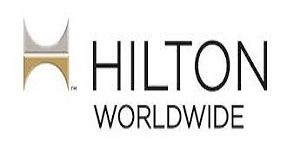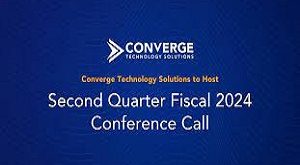In the event that you have an effective financial planning account, be it a 401(k), individual retirement account or simply an investment fund, there’s a very decent possibility you have a portion of your cash in a file common asset or trade exchanged store.These venture items, which expect to duplicate the exhibition of market files, have filled in notoriety throughout the long term thanks to their low expenses and by and large prevalent returns when contrasted and crafted by dynamic supervisors.
In the detached financial planning world, three resource chiefs rule: Vanguard, BlackRock (which works iShares ETFs) and State Road, which deals with the SPDR line of file reserves.Assuming you perceive these names, it very well may be on the grounds that you’ve seen them in your organization’s 401(k) arrangement. Be that as it may, contingent upon your calculation, you might have considered them via virtual entertainment to be well.Search any of these organizations’ names on X or Instagram and you’re probably going to find posts from people guaranteeing the resource chiefs “own” or “control” an immense number of U.S. companies.
Indeed, even beyond intrigue circles, lawmakers including House Legal executive Administrator Jim Jordan have said these organizations, which control gigantic investor casting a ballot power at unmistakable U.S. organizations, employ that ability to progress political drives.
In a model broadly refered to by pundits, the resource directors effectively upheld lobbyist mutual funds Motor No. 1 in a fight to put in new chiefs on ExxonMobil’s board who could push the energy firm to lessen its carbon impression.
Official confident Vivek Ramaswamy has more than once compared these organizations to a “cartel,” claiming they need to introduce ESG strategies around issues like variety and the climate at American organizations to the detriment of investors’ best monetary interests.This is the very thing you really want to know the following time Vanguard, BlackRock and State Road come up in your feed.
No, these organizations don’t ‘claim’ large companies
Large numbers of the images you’ll see in regards to this triplet of organizations will guarantee that they “own,” “control,” or “are top financial backers in” significant American partnerships like Apple, Lockheed Martin and Pfizer.
On the off chance that you look into the top institutional financial backers in these organizations, you will find significant resource supervisors near the first spot on the list. Vanguard is the top investor of Apple stock. BlackRock is No. 2, and State Road is No. 4. State Road, Vanguard and BlackRock are the top investors in Lockheed, in a specific order. Pfizer’s top investors:
Vanguard, BlackRock and State Road.
“They really do claim an enormous piece of the public portions of those organizations, so that is valid,” says Daniel Sotiroff, ranking director research investigator for Morningstar Exploration Administrations. “However at that point you want to make a stride back and wonder why that is.”The explanation: These organizations oversee immensely famous record finances that are loaded up with financial backer dollars. The Vanguard 500, which plans to follow the presentation of the S&P 500, has more than $350 billion in resources. Express Road’s comparable ETF has more than $400 billion.
That cash is being put resources into S&P 500 organizations, like Apple, Lockheed Martin and, indeed, Pfizer. However, it doesn’t have a place with the resource directors. It has a place with you.
“These organizations own these offers for their financial backers,” says Sotiroff. “They don’t possess them for their very own corporate reasons. They didn’t simply go out there with their own cash and begin purchasing up stakes in these organizations.”Financial backers realize that this generally will be valid. BlackRock is a public corporation; the assets it contributes for the benefit of its investors added up to more than $9 trillion as of June 2023. In the interim, the absolute worth of each and every portion of the organization’s stock is $95 billion.
That is on the grounds that BlackRock brings in cash by gathering charges from its financial backers, not by procuring benefits from the organizations it puts resources into. To put it plainly, BlackRock doesn’t claim a part of numerous U.S. companies. Individuals who own portions in BlackRock reserves do.
No, resource directors don’t cast a ballot as a ‘cartel’
Alright, regardless of whether these resource directors own the offers through and through, they actually hold them for your benefit. What’s more, that implies they can utilize your cash to affect corporate direction, due to intermediary casting a ballot.Investors of a specific stock who will be unable to go to the investor meeting are permitted to cast a ballot as a substitute — projecting an early voting form for the issues that might come up for vote during the organization’s yearly gathering. These may incorporate choosing new board individuals, supporting corporate moves, like consolidations or acquisitions, or setting chief rewards.
Assuming you own a S&P 500 file store, however, you own portions in approximately 500 organizations. As an issue of accommodation, rather than mailing you 500 intermediary polling forms, resource administrators vote for your sake, propelling what they by and large accept to be the best monetary interests of their investors.Here’s where the pundits come in. Ramaswamy and others say that these resource directors use casting a ballot ability to push ESG drives — those pointed toward working on natural, social and administration issues at these organizations — that they guarantee are negative to these organizations’ main concerns.
Whether that is really the case is far from being obviously true. ESG defenders contend that readiness for environmental change, for example, shows that an organization is overseeing risk. Pundits chalk up ESG approaches as “woke” interruptions impeding beneficial undertakings.Indeed, the resource chiefs are exceptionally straightforward about their democratic cycle and how they vote. Peruse the immense writing resource supervisors distribute on this point, and you’ll observe that most of these votes are on ordinary corporate issues. During the 2023 intermediary year, Vanguard casted a ballot 93% of time for the board drove proposition to choose chiefs — each of them 24,679.
BlackRock, for the handwringing around its all ESG drives, reports that by far most of investor proposition on natural issues and those influencing individuals either needed monetary legitimacy or concerned issues that were at that point being figured out by the organizations being referred to. According to subsequently, BlackRock, the firm upheld only 26 out of 399 — 7% — of such proposition.Furthermore, any cases that the supposed “Huge Three” are going about as a cartel on ESG issues are misleading too. Most importantly, they may not actually have the clout to make it happen, brings up Reserve Graham, boss speculation official at Graham Capital Abundance The executives in Washington, D.C. According to at a major firm, he, “the Huge Three could claim 20% of offers, yet 80% is investors out there that are not the Enormous Three.”
Also, the Huge Three scarcely vote in lockstep. In an examination of Vanguard, BlackRock and State Road intermediary casting a ballot in the two years finishing off with Walk 2023, a Morningstar report found the three resource directors differ on key votes multiple thirds of the time.In any case, you may be thinking, I could do without the possibility of these enormous shared reserve organizations deciding for my sake, particularly on issues that should have been visible as political. Firms are trying out projects to address these worries.
Vanguard, BlackRock and State Road have all sent off experimental runs programs as of late that permit investors in specific assets to coordinate the resource chiefs on how they might want to decide on specific issues.At the end of the day, these organizations are recognizing that it’s your cash they’re placing into business sectors, not theirs. Furthermore, in the event that you could do without the manner in which they vote for your benefit, there’s an opportunity these progressions could before long permit you to make your voice heard.








